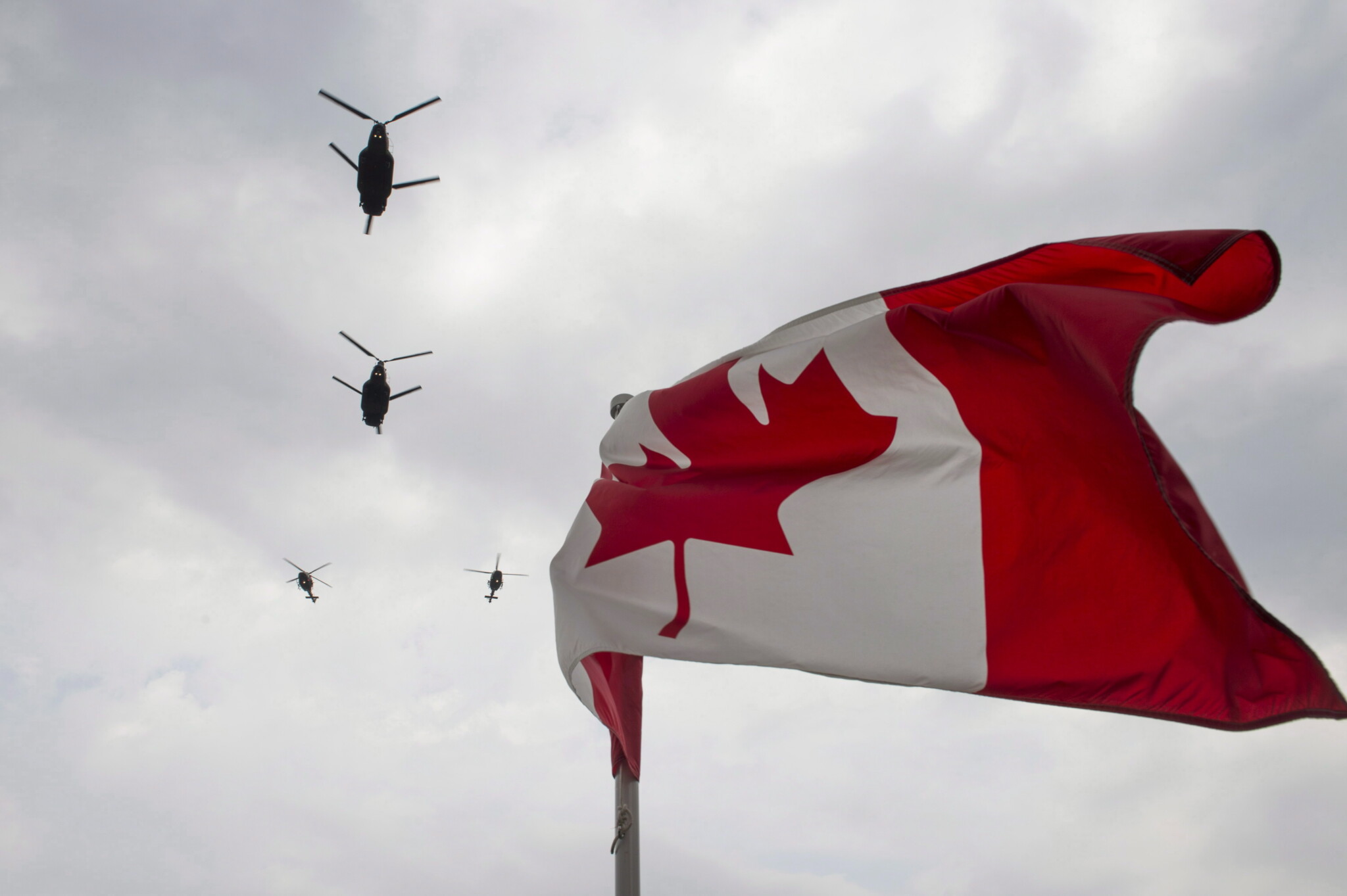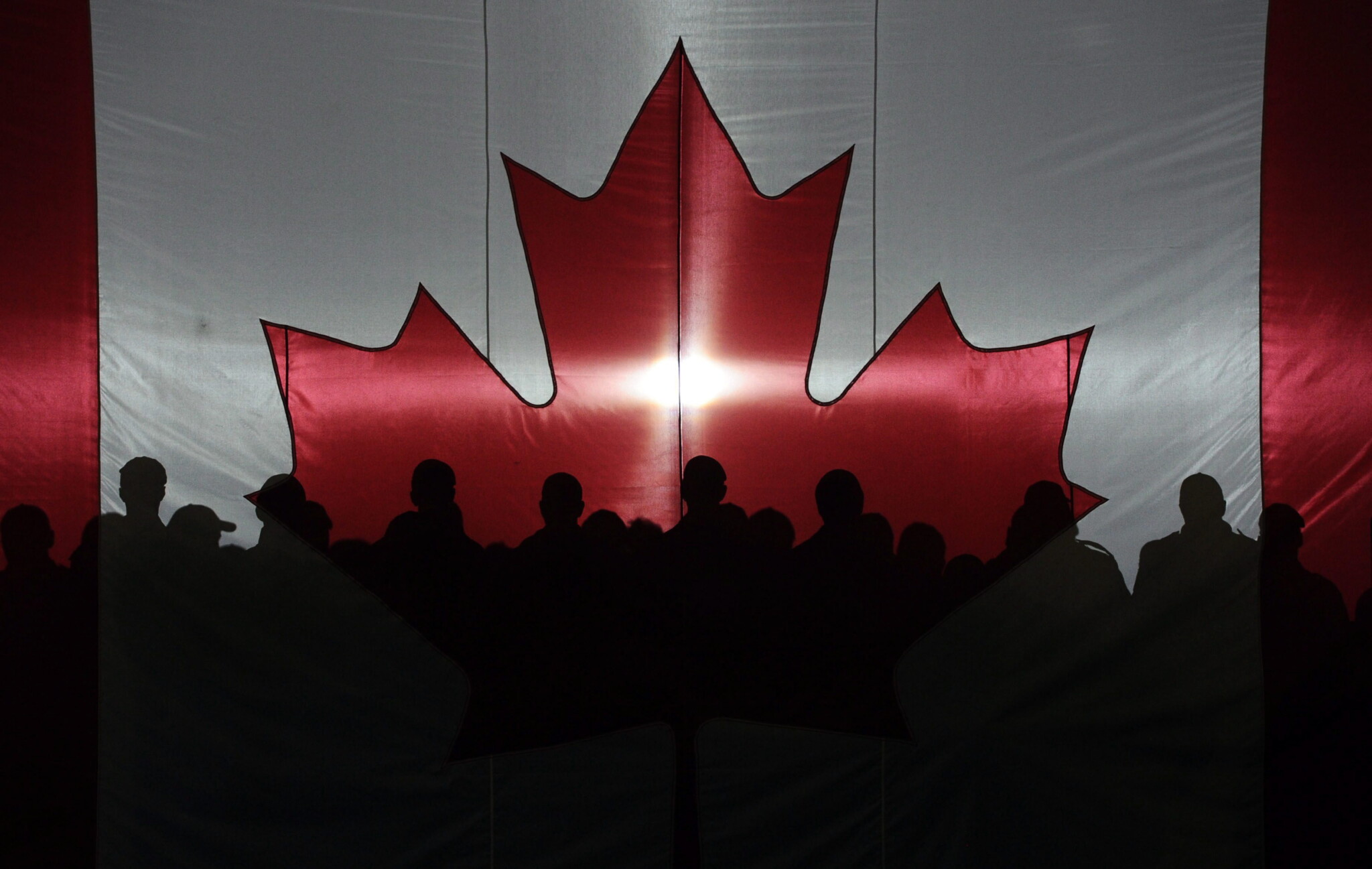
As the United States retreats from being a unipolar power, the prevailing global order is at a crossroads. For Canada, it’s time to start thinking about what comes next and what it means for Canadian policy. The Hub is running a new essay series to grapple with these seismic changes and offer a new clear-headed direction for Canadian foreign policy.
Although it’s been less than fifty days since President Trump’s inauguration, it feels like it’s been far longer. That’s because the Trump 2.0 administration isn’t just a redux of Trump’s first term—it has moved with far greater ambition and speed this time around.
The most significant developments have been in the areas of trade and foreign policy where the administration is looking for nothing less than a fundamental reordering of global politics. Canada’s political class has struggled to grasp this reality.
Even as we were subjected to tariffs this week, the Canadian reaction still fails to see the use of tariffs as a lever to reshape America’s trading relationships and the broader global trading system. This myopia is a problem for Canadian policymakers as they formulate a response.
Simply put: Trump wants to force regional allies like Canada to fall in line with American interests in a new, multipolar world. If Canadian policymakers don’t move beyond symbolic outrage and craft a serious strategy for this new world, our sovereignty could be at risk.
As Oren Cass recently argued at The Hub, Trump and his administration believe that the liberal international order is no longer serving American interests and hasn’t for some time. In the Trump administration’s view, the U.S.-led system of global cooperation on trade and security has become “obsolete,” actively working against American economic and geopolitical interests.
International agreements and institutions such as the IMF and the UN that were once considered stabilizing are now seen as constraints that benefit other countries at the expense of the United States. In his Senate confirmation hearing, now-Secretary of State Marco Rubio even described the U.S.-led order as a “weapon being used against us.”
At the core of the Trump administration’s foreign policy is the belief that the unipolar moment of the United States as the sole global superpower was an anomaly rather than the norm. His administration sees multipolarity as the reality and, in fact, a preferred framework for engagement. There’s a deliberate effort to upend the post-Cold War order and to reshape globalization in ways that prioritize American economic and strategic interests.
As Canada has found out, his “America First” reordering of the world also applies to allies, not just adversaries. The Trump administration is inclined towards a realist foreign policy that prioritizes regional spheres of influence. It has already sought to reduce American involvement in conflicts outside its immediate sphere, such as scaling back its supportive role in the Russia-Ukraine war, while expecting allies to take on more responsibility.
Trump himself, off-the-cuff policymaking, may be an imperfect vehicle for any kind of consistent worldview, but that does not diminish the seriousness of the situation Canada finds itself in.
According to this point of view, Canada is seen with skepticism. The perception in Trump’s Washington is that Canada has benefited from U.S. military protection, gaining preferential market access while investing in social programs and economic policies rather than its own national defence.
This week of course Canada was targeted by tariffs which themselves represent a key part of Trump’s political economy. Economic nationalism is central to his vision for remaking the global order, with tariffs and trade restrictions serving as both negotiation tools and structural mechanisms to rewrite the economic relationship between the United States, its allies, and adversaries.
The belief that allies have taken advantage of the U.S.-led system is deeply ingrained in Trump’s populist appeal, which is widely shared among his administration’s key figures. The use of tariffs against Canada, for example, shouldn’t be understood as a temporary pressure tactic but rather a fundamental shift in economic relations.
President Trump’s claim that he wants Canada to become the “51st state” underscores his broader push for closer alignment between Canadian policy and American interests even if it comes at the expense of Canada’s own interests. The lack of clarity about the expectations or demands from the Trump administration has been frustrating. It’s led many Canadians to assume that there’s nothing that we can do to reach a new agreement so therefore we must fight in the form of retaliatory tariffs and other escalations.
But there is a better option. By proactively shaping the terms of realignment, Canadian policymakers can ensure that our national sovereignty is preserved. Canada must understand and in turn focus on responding to the new geopolitical assumptions of the United States rather than contributing to an escalatory trade war that we’ll certainly lose.
Up until now, the Canadian approach has been to reinforce and double down on the assumptions of the liberal international order that Trump seeks to dismantle. At the same time, the resignation of Prime Minister Justin Trudeau, a prorogued Parliament, and an ongoing Liberal leadership race have left Canada with a leader who lacks both a mandate and the political support needed to defend national interests. If Canada had a prime minister who was focused more on our national interest instead of the Liberal Party of Canada’s interest, we might be able to come to the table with the Americans with a series of proposals that can preserve our sovereignty, without a costly trade war and ensure that the Americans view us as a trusted partner in their remaking of the global order.
Many Canadians have reacted emotionally (understandably I might add) to Trump’s actions, viewing them correctly as direct attacks on national sovereignty. Yet Canadian politicians have been responding to the raw emotion rather than coming forward with a plan that demonstrates we are a serious nation that should be taken seriously.

Canadian Forces CH-47 Chinook helicopters participate in a flyover of Parliament Hill in Ottawa on Friday, May 9, 2014. Justin Tang/The Canadian Press.
Reciprocal tariffs can be a useful threat, but an escalatory trade war cannot be our only response to American threats against Canada. While politicians, business leaders, and media elites worked themselves into an emotional frenzy, it’s Canadian workers and consumers who will bear the greatest burden. The elite can weather a trade war—with only minor reductions in wealth and little impact on their material well-being. However, auto workers, skilled tradespeople, forestry workers, and service sector employees will face job losses or significant reductions in income.
Yet the domestic debate has amounted to “you’re on Team Canada or you’re not.” This false binary that considers our options as a destructive retaliation or complete capitulation is self-evidently wrong.
So how should Canada respond? We must craft a strategy that prioritizes Canadian interests while identifying areas of alignment with U.S. interests to secure economic stability. Some may argue that Trump is not to be trusted no matter what we do, and that risk is real. However, by proactively defining a plan that advances our national interest, we will be in a stronger position should a trade war become protracted.
First, we most obviously must increase our investments in our military capacity. This is a longstanding and fair grievance that the Americans have had, including with the Biden administration. We should be expanding our military capacity not to serve the American interests but to preserve our sovereignty in this multipolar world that no longer reflects the post-Cold War equilibrium.
We need to be ambitious, flexible, and courageous in ramping up our military spending and capacity. Pierre Poilievre’s plan to build an Arctic military base and massively increase our military presence in the North is a good first step. Ideas like an integrated North American defence procurement model, as the former governor of the Bank of Canada, Stephen Poloz, has argued for, should be seriously considered.
Canada has been unable to procure military equipment in a cost-effective and timely manner and outsourcing the contracting to the United States while we pay the bill could ensure we rapidly expand our military capacity while integrating our militaries further with the United States. Additionally, we could be a leader in embracing technology with the use of drones or other autonomous vehicles helping us overcome our smaller population base for our regular Canadian Armed Forces.
We also need to consider allowing American missile defence systems in the Arctic, a rejuvenation of the Canadian Armed Forces recruitment by following the American lead of putting aside Diversity, Equity, and Inclusion (DEI) policies, and a national morale-building campaign focused on creating pride and honour for all of Canada’s historic contributions to global security, not simply peacekeeping efforts.
Second, we need to recognize that many of the international institutions that the Americans criticize, like the UN, are also not serving Canadian interests. We should be working to partner with the Americans to create new institutions and exit ones that conflict with our own interests, such as the Chinese Communist Party-adjacent Asian Infrastructure Investment Bank (AIIB) that the Trudeau government wrongly signed on to. We should only engage with international institutions that can serve the Canadian national interest, which ought to be preserving our sovereignty and economy in that order.
Third, we should consider aligning our regulatory frameworks to effectively compete with the American economy. This will enable our entrepreneurs and innovators to operate without unnecessary constraints from regulatory “gatekeepers.” Unleashing Canada’s vast natural resource potential will benefit both Canada and the global community. If a strategically decoupling of our economies ends up becoming a reality, it is essential to focus on enhancing our own economic capabilities. One area where this can be achieved, in alignment with current U.S. efforts, is through the regulation of artificial intelligence, which could serve as a significant driver of economic growth. Recently, Vice President JD Vance delivered a speech at the AI Action Summit in Paris, warning against excessive regulation of AI and criticizing the EU’s approach could potentially “kill a transformative industry.” The Canadian approach thus far has been closer to the EU approach than Trump’s.
Fourth, we should immediately request the renegotiation of CUSMA and collaborate with the United States to close loopholes that allow Chinese goods to enter the U.S. through Canada and Mexico. We must be willing to accept changes to the agreement, but we must not capitulate on strategic economic sectors. We should continue aligning our tariff policies with the U.S. on Chinese imports while working to rebuild our strained relationship with India, the world’s largest democracy.
Fifth, as Canada prepares to host and chair the G7 summit this June in Alberta, we have an opportunity to demonstrate our seriousness on the world stage. By crafting an agenda that serves both our interests and those of the Americans, we can focus on how the Canadian interest can shape the new global order, the G7’s response to rising threats from China, Russia, and Iran, immigration security, and increased defense spending among G7 nations. This summit presents a leadership test that Canada must rise to—showing President Trump that we are a sovereign nation capable of asserting our national interests while aligning with his administration’s vision for reshaping the global order.
Canadian policymakers must recognize that Trump’s approach to global politics is not an anomaly—it reflects a broader transformation in American foreign policy that is likely to persist. Instead of reacting with indignation or short-term symbolic gestures, Canada must develop a coherent strategy that protects national interests while engaging with the new reality of American interests. Failing to do so will leave Canada vulnerable to economic destruction and isolation from our most important neighbour.
The choices made today will determine Canada’s place in the evolving world order, and our leaders must rise to the occasion before it is too late.









